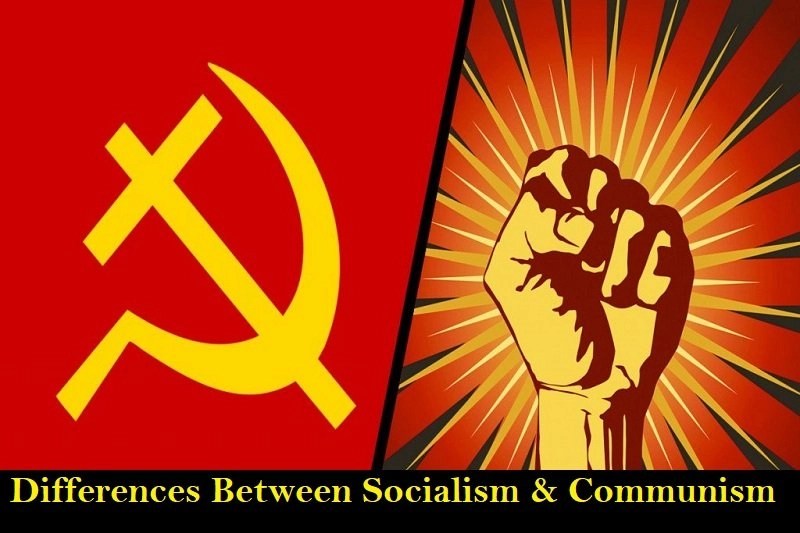
Since the collapse of the Soviet Union and its satellite states in Eastern Europe, Communism has been erroneously conflated with Socialism. While they share common roots, these ideologies are pretty different on a fundamental level. These days, “socialist” is often used as an insult by conservatives to describe practices that don’t align with their political agenda or offend some deeply held belief system. Yet it comes down to what you mean when you say either word—and how accurate your assumptions about each one are. Keep reading for more information about socialist vs. communist! Socialism Vs. Communism: What are The Differences?
What is Socialism?
In the simplest terms, Socialism is an economic system where you share both your work and rewards. Mutual Aid Societies were some of the earliest forms of this kind of economic practice, where people would contribute to each other’s well-being by pooling money together for their mutual benefit. Socialists believe that everyone should have equal access to opportunities—and that they shouldn’t be rewarded just because someone has more than them. Instead, life outcomes are determined by the effort put into something or making smart decisions with what one already has (like investing wisely). Some socialist governments also offer universal health care and education systems. In contrast, others take it a step further and provide housing assistance programs like food stamps to ensure everyone has what they need to live comfortably.
Socialism is the idea that people should put aside their wants and needs, which are considered “selfish” tendencies, to work for the good of everyone. Socialism can take many forms; some socialists believe that Socialism will come through evolution as people increasingly realize that they need one another. Others think that it is a political-economic system that can only come about through revolution. Socialism is based on Marxist ideas — social classes are fundamentally opposed by interests, with workers being exploited by those who have the money. This situation justifies revolution to overthrow these subservient classes so all members will have equal life opportunities.
Socialism generally has five core tenets: public ownership overproduction of goods, centralized planning or control over the economy, distribution based on one’s contribution to society (from each according to ability), social equality and elimination of class distinctions, and government control of all aspects of public life. Socialism does not directly support democracy; it believes workers should charge capitalists or leaders elected by the popular vote. It can take many forms, such as Anarchism (public ownership without a state) or Marxism (centralized planning with full public license). Socialism has been criticized for its economic inefficiencies and its collectivist approach, which some argue goes against human nature.
Socialism is different from Communism; Socialism believes in classes while Communists believe that all members of society will eventually share equally and that classes don’t exist. Socialism also differs from Social Democracy, which involves Socialism within a Capitalist framework. Socialism has been criticized for its reliance on taxation and its lack of incentive to work hard. It can be thought of as another form of welfare handout, with everyone receiving what they need instead of earning it based on merit in the market economy. Socialism has also been criticized for encouraging statism in that the state runs everything rather than individuals pursuing their own private goals in a free market. It has offered an alternate way to express politics by rejecting both Liberalism (capitalism) and Conservatism (monarchy). Socialism is one step away from Communism, but many leaders believed that Socialism was less likely to use violence when bringing about change.
Examples of Socialism
Some examples of Socialism are:
- The Socialist Federal Republic of Yugoslavia,
- The Socialist Republic of Vietnam,
- New Zealand’s state-owned enterprises and all Soviet republics before the dissolution.
- The United States is sometimes considered a socialist state because of the wealth tax that supports Medicare and Social Security. In reality, America operates under a capitalist welfare system. This means that government taxes the people to redistribute money from the rich to the poor via social programs like Medicare. Still, it is done through private channels instead of direct political control over industry.
What is Communism?
Communism is a system in which the means of production and distribution are owned by all members equally, rather than just individuals or groups having control over their belongings, as in capitalism. In other words, there would be no private property at all under Communism. Everything that people use must be shared, such as land, money, etc., because what one person uses cannot belong exclusively to them unless others don’t have access to it.
Communism is a political movement that attempts to overthrow the current System of state-controlled capitalism. It aims to replace it with a purely class-less society in which everyone works for the collective benefit. Communism is, of course, the opposite of capitalism, which you’re probably more familiar with. Communism has been tried multiple times throughout history and with varying degrees of success. Still, it has never successfully grown into a full-fledged economic system outside of China and some parts of eastern Europe.
This System is the idea that everyone works together to better society instead of working primarily for themselves or mostly for others. Communism differs from many other types of government because it doesn’t have a leader, which means no one person controls everything, making it similar to democracy, where the people voted on rules instead of being dictated by someone in power. Some political scientists distinguish between Communism and Socialism because Communism has never been successfully implemented without another form of government first taking root. In contrast, Socialism can exist on its own merits.
Communism is an economic system characterized by social ownership and cooperative production management via state-directed agencies; “Communist” is used by Marxists to refer to the political ideology, which they see as an extension of the broader movement.
In Marxist thought, Communism is seen as a form of higher phase socialism that would eventually replace capitalism and precede the upper phase of social and economic development: Libertarian or Anarchist Communism. It’s important to understand that Marxism does not advocate for state ownership over private ownership; instead, it advocates for social ownership of the means of production. In contrast, Socialism may support state ownership (such as in the case of Venezuela). It can also mean collective or cooperative management by workers (as in the case of many agricultural co-operatives). It’s hard to separate these two groups because they share so much common ground. Still, one way to think about it is that socialists are more likely to favor government involvement over economics, whereas communists are just concerned with changing how things are produced and who owns them. The goal of both ideologies is ultimately the same: a classless society where all people have equal access to economic opportunities.
Examples of Communism
Some examples of Communism are:
- Militant groups, such as the Black Panther Party and Revolutionary Armed Forces of Colombia.
- Cuba, where all businesses are government-owned and private property is almost non-existent
- North Korea, where all private business is banned by law, homes are searched to ensure nobody has bought anything new. If caught with something made after the Korean War (1950-53), that person can be sent to a “re-education” camp or executed for violating the Ten Principles for the Establishment of a Monolithic Ideological System.
- The USSR during the 1930s-50s under Stalin, responsible for mass killings of civilians who lived in fear because it was nearly impossible not to break.
- The USSR was a communist country until 1991 when it crumbled due to the lack of power and authority which Communism required.
- Vietnam still practices some aspects of Communism, even though they have joined the international community as full-fledged members for decades now.
- Laos is one more Example of Communism in the world today.
- China’s government has slowly transitioned into capitalism by allowing trade with other countries worldwide; however, the control that the Communist Party has over people’s lives in China means that it is still an example of Communism today.
Differences Between Socialism and Communism
| S/N | Socialism | Communism |
| 1. | Socialists believe government intervention should primarily benefit workers by providing better wages. | Communists advocate abolishing private property. |
| 2. | Socialism advocates for reform rather than revolution; it promotes change within existing systems (capitalism). | Communism seeks to overthrow these systems entirely. |
| 3. | A socialist might believe that the state should provide health care and education. | A communist would argue for complete public ownership of all industries. |
| 4. | Socialists advocate for higher taxes on corporations and wealthy individuals to fund social welfare programs. | Communists don’t think any individual should have more than others. |
| 5. | Socialists believe that the state will eventually “wither away” as it becomes unnecessary in a classless, egalitarian society. | Communists do not share this belief. |
| 6. | Socialists often support democracy and reform policies. | Communists are frequently anti-democratic. |
| 7. | Socialism is an economic system characterized by social ownership of the means of production—not just factories but farms too. | Communism is a political/economic ideology that aims for a classless, stateless society where goods are distributed according to need rather than financial resources. |
| 8. | Socialism tends to focus on income inequality. | Communism seeks equality across all aspects of life. |
Socialism and Communism are two political systems that aim to achieve a classless society; however, while Socialism is based on creating a society with equal power, communist societies all center around state ownership rather than private companies. There’s a lot of debate surrounding the different types of Socialism vs. Communism and what might work best in–but either way, none offer complete freedom of the individual. While neither System provides for full personal liberty, there is no perfect solution for ensuring equality among citizens or ensuring fairness throughout an economy.




